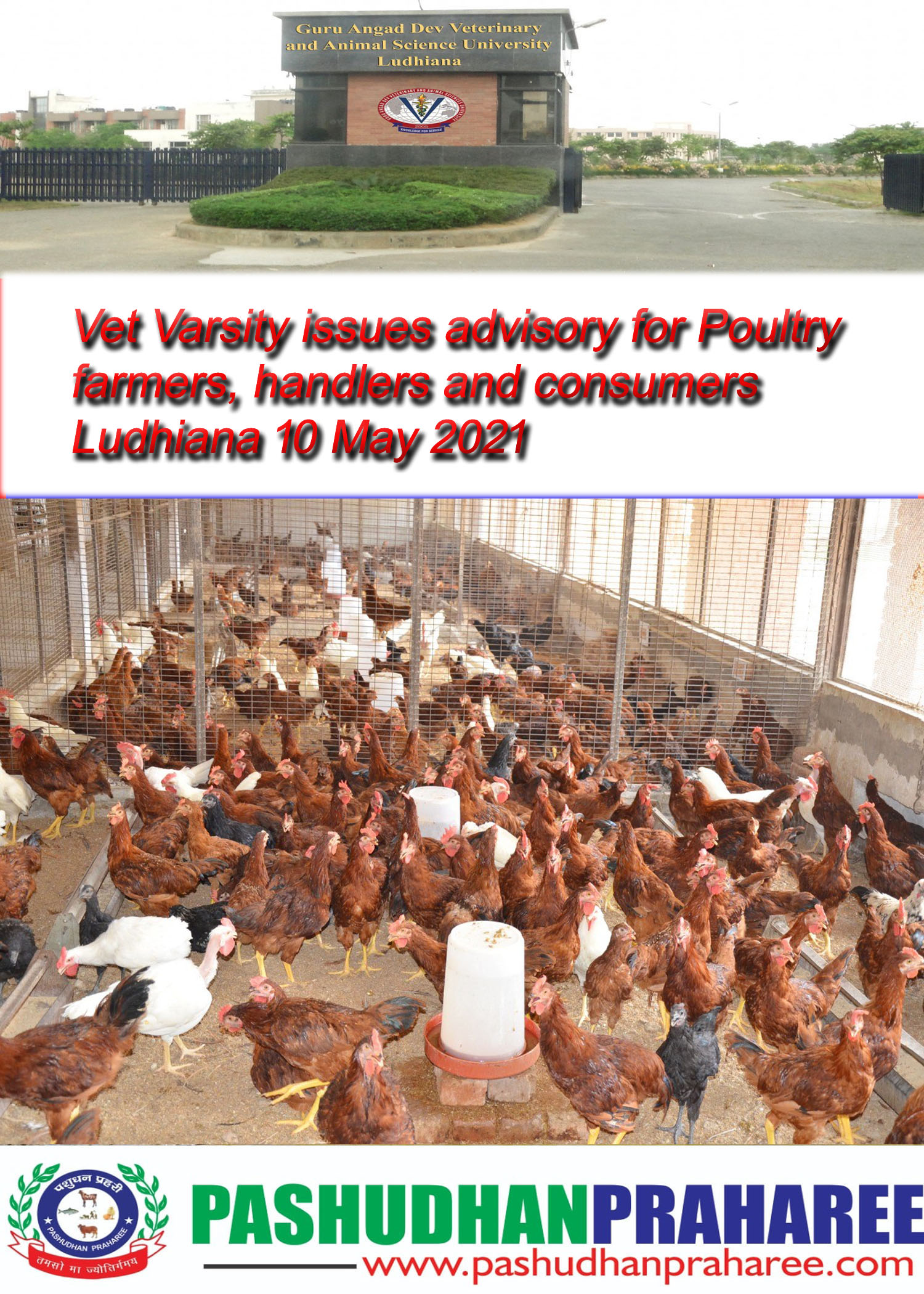Vet Varsity issues advisory for Poultry farmers, handlers and consumers
Ludhiana 10 May 2021
Amid the ongoing Covid-19 crises in our country, Bird flu, another disease of economic and health importance has hit several states of India including Punjab in the last few months. Although there are only sporadic reports of bird flu but poultry farmers need to be more vigilant and aware about this disease. Bird flu is a disease of birds, caused by Avian Influenza Type A virus, which could affect several kinds of birds including wild birds, turkeys, quails, chicken and ducks etc. This virus shed in the faeces, nasal discharges and saliva of infected birds. Healthy birds become sick when they come in contact with the infected/reservoir birds or their secretions or contaminated feed, water or equipment. Rarely this disease transmits from birds to humans. However, the persons working in close contact of birds must follow proper personnel hygiene and safety measures.
Dr Jasbir Bedi, Director, Centre for One Health, Guru Angad Dev Veterinary and Animal Sciences University, Ludhiana briefed that poultry and poultry products including eggs should be cooked properly before consumption. Cooking at or more than 70° C kills influenza viruses. Farm to farm transmission usually occur through the movement of the live birds, people and contaminated vehicles, equipment etc. Entry of person or vehicles in the poultry farm should be regulated.
“One should inform the local veterinarian, in case he/she come across something aberrant, for example death of wild birds in the vicinity of the farm” told by Dr Rajnish Sharma, Assistant Professor, Centre for One Health. Don’t handle dead birds with bare hands. Dispose of the dead birds cautiously under the guidance of local veterinarians, either by burning or burying in a pit. While disposing them of, one should wear mask, gloves and safety goggles. If gloves not available, use an inverted polythene bag and wash your hands after the disposal. Open water troughs or farm tanks should be covered in order to avoid the fecal contamination by wild birds. Trees in the farm or near its boundary should be pruned. Other measures include maintaining sanitation of poultry farm and avoiding introduction of birds of unknown disease status.
Source-HARPREET SINGH ,M.A; M.Phil; M.J.M.C; Ph.D
Guru Angad Dev Veterinary & Animal Sciences University, LUDHIANA,
Punjab,INDIA
98159-09003



